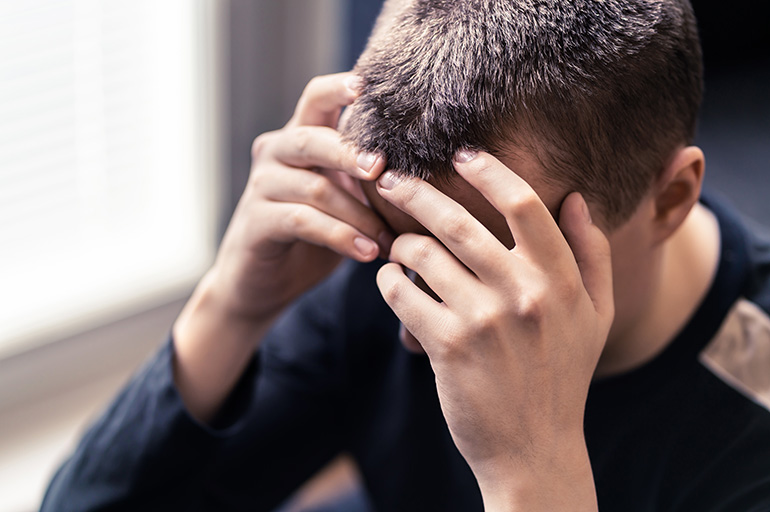Despite what many may think, relapse occurs way before a recovering person picks up a substance. In many ways, the use of drugs and alcohol after a period of sobriety is the final act in a process that was months or even years in the making. In order to help recovering people minimize the risk of relapse, they must understand early signs of relapse and take steps to address them.
In this article, we will discuss the early warning signs of relapse and what can be done to deal with those warning signs in a healthy manner. If you feel that your sobriety is on shaky ground, call Providence Treatment today. We are one of the best drug rehabs on the East Coast and provide state-of-the-art therapy programs that help you and your family navigate the difficult journey that is recovery. Our dynamic and individualized approach to treatment allows you to become more confident and happy as a recovering person.
Call us right now and take your recovery to another level.
What Is Relapse?
When we discuss relapse, it is best to start with a simple definition. Relapse happens when a person stops maintaining their goal of abstinence and resumes their use of their substance of choice. Years of chronic substance use rewires the brain, and when people start recovering from addiction, the brain doesn’t automatically transform back to its original state prior to addiction. In fact, it takes considerable time for the brain to repair itself after substance abuse.
During early recovery, recovering addicts are trying to cope with life without substances. Without the familiar crutch of drugs and alcohol at their disposal, they can struggle mightily as they live day to day. There will be times where people start justifying why using drugs and alcohol might be OK. They may say things to themselves such as the following:
- One more time won’t hurt me
- I’m just too stressed right now
- All my friends are still using
- I’m so depressed right now, I need a pick-me-up
While it is completely normal to experience these thoughts early in recovery, it is not normal to dwell on those thoughts. If people early in recovery fail to address these feelings as they happen, they grow to the point where they are too powerful to ignore. As a result, they will more than likely return to regular drug use and the cycle of addiction becomes more pronounced.
What Are The Early Signs of Relapse?
To better understand the early signs of relapse, it is important that relapse itself is seen in stages. There are three stages of relapse, and each stage features tell-tale signs. Obviously, the earlier these early signs of relapse are detected, the sooner the recovering individual has to take action. The three stages of relapse are as follows:
Emotional Relapse
The first stage of relapse is emotional relapse. During this first phase, the recovering individual may not be thinking about using, but their emotions and actions point toward a possible relapse down the road. Early warning signs of relapse in this phase include:
- Bottling up emotions
- Increasing isolation from others
- Mood swings
- Increased intolerance of others
- No longer attending support group meetings
Mental Relapse
The second stage of relapse is mental relapse. In this phase, there is a growing inner battle between maintaining sobriety and using substances. During mental relapse, people start fantasizing about using drugs again and find ways to rationalize their use. Common warning signs in this phase include:
- Increased cravings
- Constant thoughts of substance use
- Minimizing the consequences of past use
- Spending more time with those who actively use substances
Physical Relapse
If the early warning signs seen in the first two stages are not addressed, people in recovery ultimately move to the physical phase of relapse where they actually resume substance use. When people start using again, they may feel a great sense of remorse, shame, and guilt. People who physically relapse have the opportunity to regroup, figure out what went wrong, and work hard to get back on track. On the other hand, people who relapse may stay stuck in shame and guilt and continue to use, thinking they aren’t worthy of recovery.
Turn Back Relapse WIth Help From Providence Treatment
Are you newly in recovery and feel that your sobriety is slipping away from you? If you are noticing the early signs of relapse, now is the time to act. Providence Treatment is a top-tier treatment facility specializing in addiction treatment for executives and professionals. Our wide selection of programs features evidence-based outpatient relapse prevention services that are extensively tested and proven to work. Whether you struggle with substance abuse or mental health issues, the compassionate and experienced treatment staff at Providence Treatment will give you the support you need to rise above relapse.
Call Providence Treatment today and make your sobriety your top priority.
Get In Touch With Us
Are you looking for professional, comprehensive addiction treatment? Fill out our confidential form or call us at (484) 321-8297. Thank you for contacting Providence Treatment. We will be in touch with you within 24 hours.









